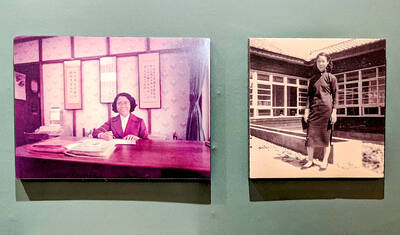FICTION
1.THE BROKER
by John Grisham
Dell
The CIA arranges a presidential pardon for a power broker who may know crucial secrets, laying a trap for the foreign intelligence service that wants him dead.
2. MEMOIRS OF A GEISHA
by Arthur Golden
Vintage
A young woman in Kyoto has to reinvent herself after World War II begins.
3. STATE OF FEAR
by Michael Crichton
Avon
Reverse eco-terrorists create natural disasters to convince the public that global warming is real.
4. THE KITE RUNNER
by Khaled Hosseini
Riverhead
An Afghan-American returns to Kabul to learn how his childhood friend fared under the Taliban.
5. NIGHT FALL
by Nelson DeMille
Warner
A husband and wife who work for an anti-terrorism task force reopen the investigation into TWA Flight 800.
6. LIFE EXPECTANCY
by Dean Koontz
Bantam
A pastry chef must struggle all his life against a family of evil madmen.
7. WHITEOUT
by Ken Follett
Signet
In the middle of a Christmas Eve blizzard in Scotland, a canister filled with a deadly virus goes missing.
8. BLOOD MEMORY
by Greg Iles
Pocket Star
A forensic scientist probes recent killings as well as a decades-old-crime -- the murder of her father.
9. WICKED
by Gregory Maguire
ReganBooks/HarperCollins
A little green-skinned girl grows up to become the Wicked Witch of the West; source of the Broadway musical.
10. TOM CLANCY'S SPLINTER CELL: OPERATION BARRACUDA
by David Michaels
Berkley
Further adventures of special operative Sam Fisher.
11. NORTHERN LIGHTS
by Nora Roberts
Jove
In Lunacy, Alaska, the new chief of police finds romance and investigates a murder.
12. RED LILY
by Nora Roberts
Jove
A woman who works in a nursery falls in love with the boss' son; conclusion of the In the Garden trilogy.
NONFICTION
1. A MILLION LITTLE PIECES
by James Frey
Anchor
A memoir by a man who was an alcoholic for 10 years and a crack addict for three.
2. IN COLD BLOOD
by Truman Capote
Vintage
A savage murder in Kansas in 1959 and its consequences.
3. THE TIPPING POINT
by Malcolm Gladwell
Back Bay/Little, Brown
A journalist's study of social epidemics, otherwise known as fads.
4. JARHEAD
by Anthony Swofford
Scribner/Pocket Books
A memoir of the 1991 Persian Gulf War by a former marine sniper.
5. THE DEVIL IN THE WHITE CITY
by Erik Larson
Vintage
A great architect and a serial killer, linked by the Chicago World's Fair of 1893.
6. CASH: THE AUTOBIOGRAPHY
by Johnny Cash with Patrick Carr
HarperCollins
The life of country music's Man in Black, who dies in 2003.
7. TUESDAYS WITH MORRIE
by Mitch Albom
Broadway
The author, a sportswriter, tells of his visits to his old college mentor, who was near death's door.
8. WHEN WILL JESUS BRING THE PORK CHOPS?
by George Carlin
Hyperion
Another volume of observations and opinions from the stand-up comedian.
9. CHRONICLES: Volume One
by Bob Dylan
Simon and Schuster
Recollections and observations from the singer-songwriter.
10. READING LOLITA IN TEHRAN
by Azar Nafisi
Random House
A memoir of a teacher's life in Iran, centered on a women's reading group she organized.
11. THE CHRONICLES OF NARNIA: THE OFFICIAL ILLUSTRATED MOVIE COMPANION
by Perry Moore
HarperSanFrancisco
A behind-the-scenes look at the making of the movie.
12. THE KNOW-IT-ALL
by AJ Jacobs
Simon and Schuster
A humorous attempt to become "the smartest person in the world" by reading all 32 volumes of the Encyclopedia Britannica.
13. HIS EXCELLENCY: GEORGE WASHINGTON
by Joseph Ellis
Vintage
A biography of George Washington, by the author of Founding Brothers.

Following the shock complete failure of all the recall votes against Chinese Nationalist Party (KMT) lawmakers on July 26, pan-blue supporters and the Chinese Communist Party (CCP) were giddy with victory. A notable exception was KMT Chairman Eric Chu (朱立倫), who knew better. At a press conference on July 29, he bowed deeply in gratitude to the voters and said the recalls were “not about which party won or lost, but were a great victory for the Taiwanese voters.” The entire recall process was a disaster for both the KMT and the Democratic Progressive Party (DPP). The only bright spot for

Water management is one of the most powerful forces shaping modern Taiwan’s landscapes and politics. Many of Taiwan’s township and county boundaries are defined by watersheds. The current course of the mighty Jhuoshuei River (濁水溪) was largely established by Japanese embankment building during the 1918-1923 period. Taoyuan is dotted with ponds constructed by settlers from China during the Qing period. Countless local civic actions have been driven by opposition to water projects. Last week something like 2,600mm of rain fell on southern Taiwan in seven days, peaking at over 2,800mm in Duona (多納) in Kaohsiung’s Maolin District (茂林), according to

Aug. 11 to Aug. 17 Those who never heard of architect Hsiu Tse-lan (修澤蘭) must have seen her work — on the reverse of the NT$100 bill is the Yangmingshan Zhongshan Hall (陽明山中山樓). Then-president Chiang Kai-shek (蔣介石) reportedly hand-picked her for the job and gave her just 13 months to complete it in time for the centennial of Republic of China founder Sun Yat-sen’s birth on Nov. 12, 1966. Another landmark project is Garden City (花園新城) in New Taipei City’s Sindian District (新店) — Taiwan’s first mountainside planned community, which Hsiu initiated in 1968. She was involved in every stage, from selecting

As last month dawned, the Democratic Progressive Party (DPP) was in a good position. The recall campaigns had strong momentum, polling showed many Chinese Nationalist Party (KMT) lawmakers at risk of recall and even the KMT was bracing for losing seats while facing a tsunami of voter fraud investigations. Polling pointed to some of the recalls being a lock for victory. Though in most districts the majority was against recalling their lawmaker, among voters “definitely” planning to vote, there were double-digit margins in favor of recall in at least five districts, with three districts near or above 20 percent in